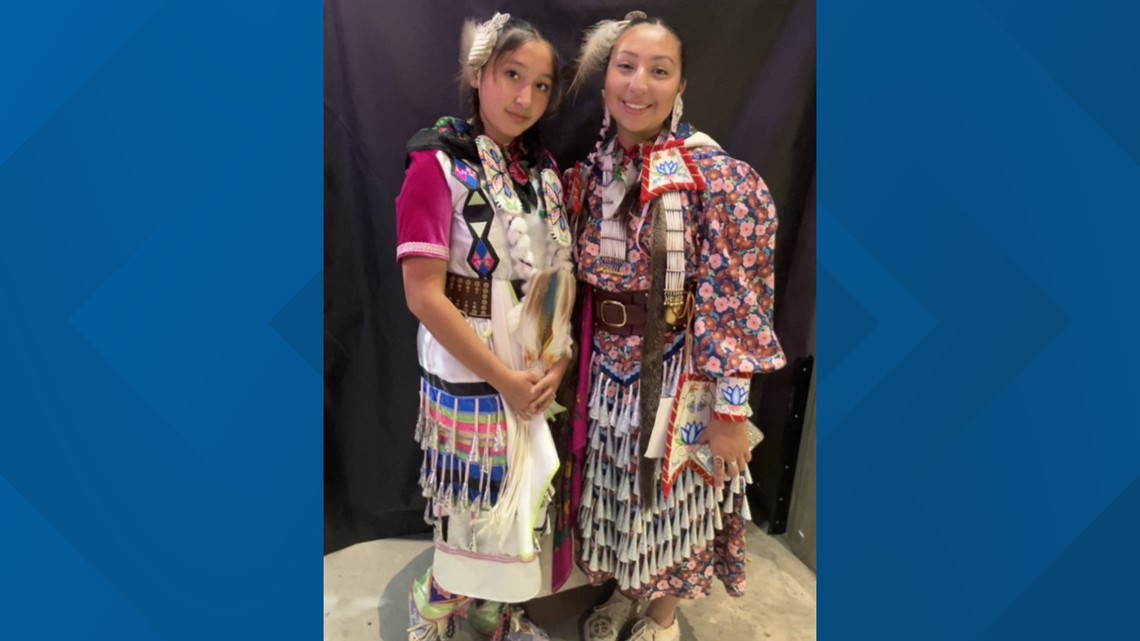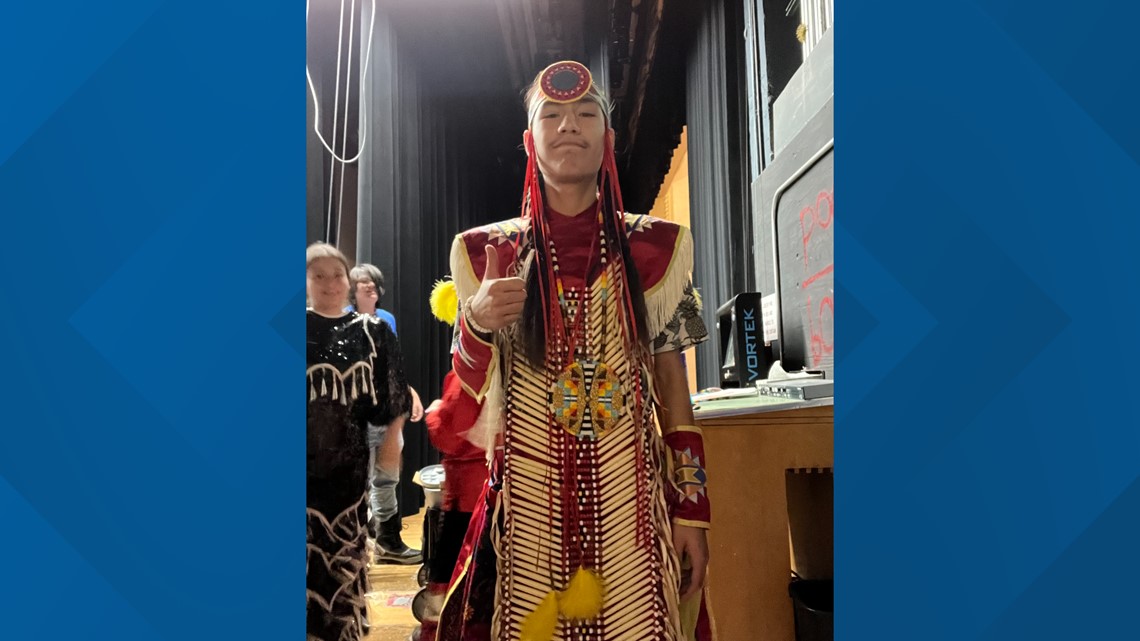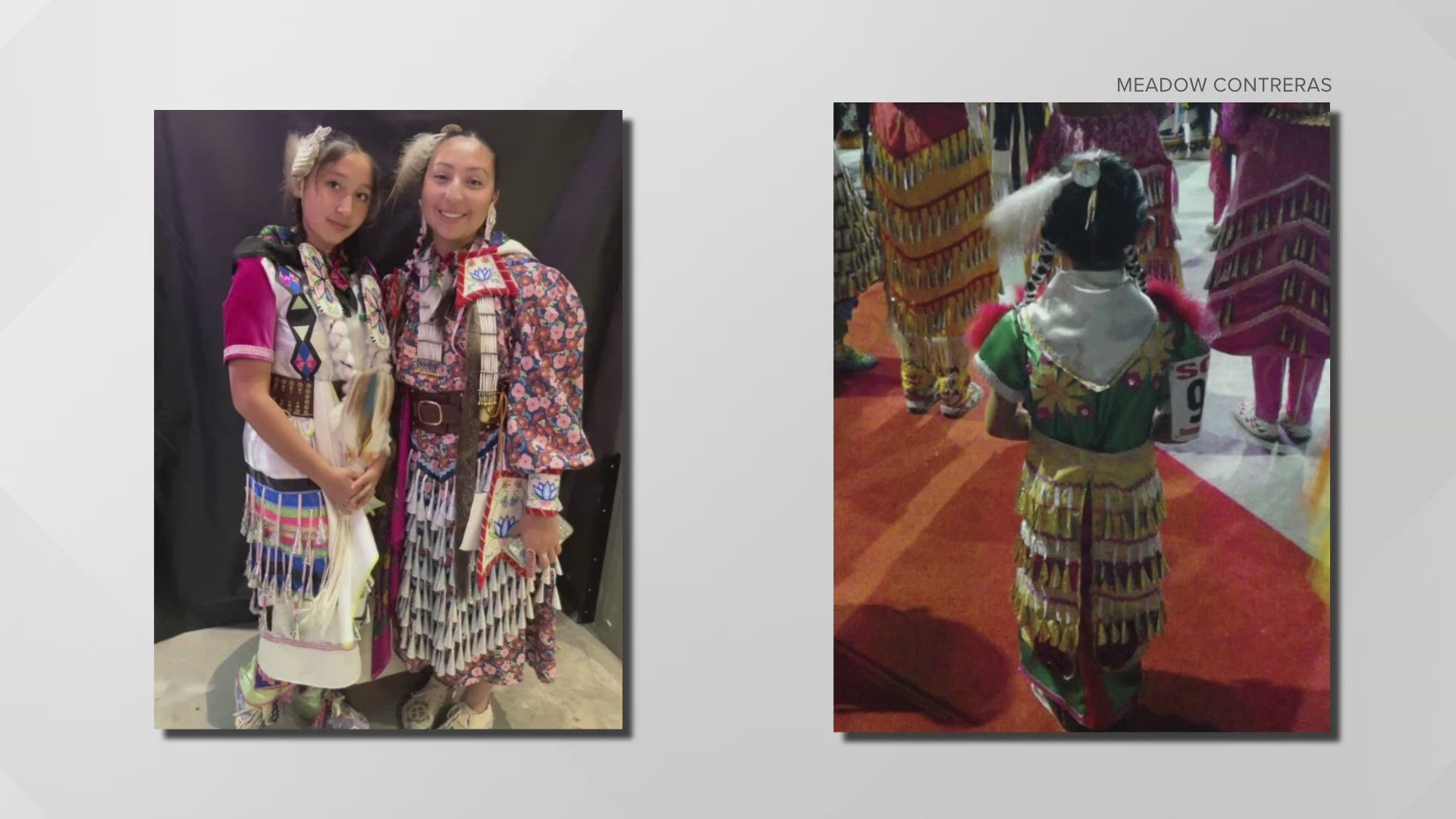DENVER — A bill allowing Native American students to wear traditional regalia at graduation ceremonies passed the state Senate on Monday.
SB23-202 makes sure schools can't stop students from wearing regalia, even if the administration claims it violates the dress code.
The bill's sponsors, state senators Jessie Danielson (D-Wheatridge) and Sonya Jaquez Lewis (D-Longmont), say it honors culture and history in Colorado.
A culture that, historically, experienced longstanding suppression in the state and across the country.
"We need to do a lot to remedy our past," Danielson said.
Danielson has been a champion of indigenous issues at the state level, including work with tribes on the ban on mascots and establishing the Office of Missing and Murdered Indigenous Relatives.
"The reality of it is, this is already a protected right that Native Americans have. It's just that the law will make it very clear to schools that they can't interfere with that right anymore," Danielson said. "These traditions, this regalia predates any school or institution that is here in the place that we now call Colorado."
Jaquez Lewis agrees, calling schools' decisions to not allow traditional regalia at graduations "absurd."
"This bill is a way to recognize that they deserve the right to display, and to be proud of, and show the whole world their culture and their heritage," she said.
Community leaders, parents and students testified in support of the bill in committee hearings.
Donna Chrisjohn was one of them. She says her son's high school rejected their request for him to wear regalia at graduation.
"I think any parent and any person, obviously, that's been a student, which is everyone, wants to feel like themselves. Wants to feel whole, wants to feel supported and celebrated," she said. "I don't understand why there's such pushback against our children wanting to feel like themselves in these special moments."
Chrisjohn noted that traditions indigenous people have had celebrating things like coming into adulthood existed for thousands of years prior to modern graduation celebrations. She says she finds herself fighting for recognition.
"Having to navigate spaces that are not meant for indigenous people, institutions like school and work environments, are those places that our values are not at the forefront, and most times not even thought about," Chrisjohn said. "So, we are erased and invisible a lot of the time. So, we're having to either educate, reeducate, and assert ourselves in a lot of spaces, sometimes on a day-to-day basis."
Indigenous students are speaking up, too.
Meadow Contreras is a sophomore at South High School and class president. She plans on wearing traditional regalia to her graduation: A beaded cap, an eagle feather tied to her tassel. She'll wear moccasins and leggings as a jingle dress dancer.
"It represents me carrying my ancestors and honoring them. And, like, a celebration that a lot of them wouldn't be able to accomplish," Contreras said. "So, it's my way of honoring them through accomplishments that I'm proud of."


Cassidy Mendoza, a junior at South High School, plans on wearing regalia, too. For him, it's both a sense of pride in his culture and a way to be himself.


"I feel like it's gonna show people that it's okay to be themselves and, you know, to represent their culture in front of everybody and feel comfortable," he said of the passing of the bill.
Mia TallBull, a freshman at John F. Kennedy High School, already wore her regalia to graduation - a red hawk feather in eighth grade. She hopes the bill will encourage students to not only be themselves, but to graduate, too.
"It might encourage people to graduate, to want to graduate," TallBull said. "Like people who've dropped out of high school, people who are still going to school. Anybody who hasn't graduated, and young ones that are going to graduate, it might just encourage them more to be proud of when they graduate, to be able to wear the regalia."
"In all statistics it shows that Native Americans do have the lowest graduation rate," Marcus Cyrus said. Cyrus works as a Native American Culture & Equity Specialist at Denver Public Schools. He also testified in support of the bill.
"It's that element of representation, that element of identity. The more of us that we can see going up there and being proud of who we are, and being proud of our background, it is going to ignite that fire and excite others to go back or go through and do the same," he said.
While the bill may seem like a small ask of the state legislature, its sponsors and supporters hope taking small steps paves the way for addressing larger issues affecting indigenous communities in Colorado.
"I think with this bill being passed, it's like a small step in our, the indigenous communities' voice getting bigger... each time I feel that the students, including myself, speak on this, I feel like our voices are getting stronger each time and they're hearing us," TallBull said.
"It will not only help our community, but I feel like it could also trickle into other communities where they're allowed to wear their own set of clothing and what they want to do," Mendoza added.
Even small steps can help extend discussions to larger issues, Chrisjohn noted.
"It is a segue for a larger conversation and a larger avenue to discuss, 'How do we truly support indigenous people?'" she said.
Colorado is home to two federally recognized tribes; the Southern Ute Indian Tribe and the Ute Mountain Ute Tribe. According to the 2020 US Census, 74,129 Native Americans lived in Colorado, a higher population than the neighboring states of Utah and Idaho.
The regalia bill now heads to the state House for further consideration.
SUGGESTED VIDEOS: Latest from 9NEWS

